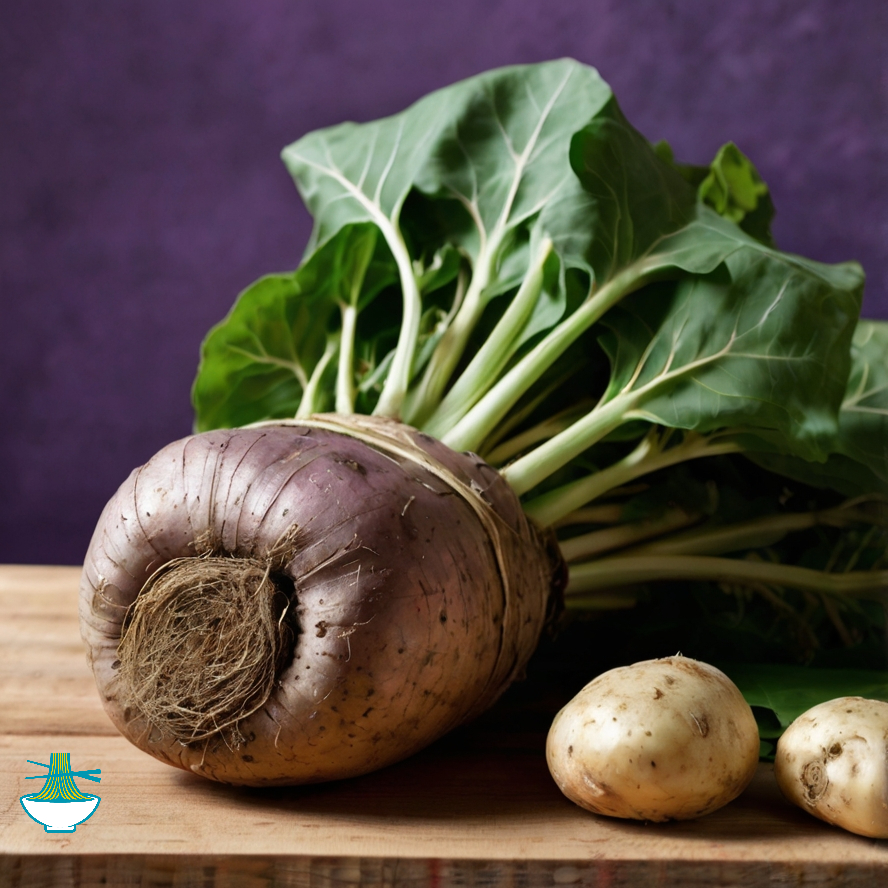Taro What It Is And How To Eat It Fresh?
Taro , a root vegetable similar in texture to potatoes , is a versatile ingredient in both savory and sweet dishes .

It provides a unique flavor and various nutritional benefits, including being rich in fiber and essential vitamins. Here's a simple recipe for taro chips:
Ingredients:
- 2 large taro roots
- 2 tablespoons olive oil
- Salt, to taste
- Optional: your choice of spices such as paprika, garlic powder, or onion powder for added flavor

Instructions:
1-Preheat your oven to 375°F (190°C).
2-Peel the taro roots and slice them thinly using a mandoline slicer or a sharp knife. Aim for uniform thickness to ensure even cooking.
3-Place the sliced taro in a large bowl and drizzle with olive oil. Toss to coat evenly.
4-Arrange the taro slices in a single layer on a baking sheet lined with parchment paper.
5-Sprinkle the taro slices with salt and any optional spices you desire.
6-Bake in the preheated oven for 20-25 minutes, flipping the slices halfway through, until the chips are golden brown and crispy.
7-Once done, remove the chips from the oven and let them cool slightly before serving.
8-Enjoy your homemade taro chips as a delicious and nutritious snack!
Feel free to adjust the seasoning according to your taste preferences, and experiment with different spices for a variety of flavors.
Nutritional Values:
Taro Root (2 large roots):
- Calories: Around 640 kcal
- Carbohydrates: Approximately 150 grams
- Fiber: Roughly 15 grams
- Protein: About 8 grams
- Fat: Less than 1 gram
- Other nutrients: Taro is a good source of vitamins C and E, potassium, magnesium, and manganese.
benefits:
- Rich in Fiber: Taro root is a good source of dietary fiber, which aids digestion, promotes bowel regularity, and helps maintain a healthy weight.
- Nutrient Dense: Taro contains vitamins C and E, which act as antioxidants, helping to protect cells from damage caused by free radicals. It also provides potassium, magnesium, and manganese, important minerals for various bodily functions, including heart health and bone strength.
- Low in Fat: Taro is naturally low in fat and cholesterol, making it a heart-healthy option.
- Gluten-Free: Taro is naturally gluten-free, making it suitable for individuals with gluten intolerance or celiac disease.
Olive Oil (2 tablespoons):
- Calories: Around 240 kcal
- Fat: Approximately 28 grams (mostly monounsaturated fats)
- Negligible protein and carbohydrates
benefits:
- Healthy Fats: Olive oil is rich in monounsaturated fats, particularly oleic acid, which is beneficial for heart health. These fats can help reduce the risk of cardiovascular diseases by lowering bad cholesterol levels (LDL) and increasing good cholesterol levels (HDL).
- Antioxidants: Olive oil contains powerful antioxidants, such as polyphenols, which have anti-inflammatory properties and may help protect against chronic diseases like cancer and Alzheimer's disease.
- Vitamin E: Olive oil is a good source of vitamin E, an antioxidant that helps protect cells from oxidative damage and supports skin health.
- Anti-Inflammatory: The compounds found in olive oil have been shown to have anti-inflammatory effects, which may help reduce the risk of chronic inflammatory diseases.
Salt:
- Negligible calories, fat, protein, or carbohydrates
benefits:
- Electrolyte Balance: Salt, when consumed in appropriate amounts, helps maintain electrolyte balance in the body, which is essential for proper nerve and muscle function.
- Flavor Enhancement: Salt enhances the flavor of foods, making them more palatable and enjoyable.
- Preservation: Salt has been used historically as a preservative, helping to extend the shelf life of foods by inhibiting the growth of bacteria and other microorganisms.
Nutritional values may vary slightly based on factors like the size of the taro roots and the specific brand of olive oil used. Additionally, if you choose to add spices, their nutritional values should be considered separately based on the amounts used.


Comments